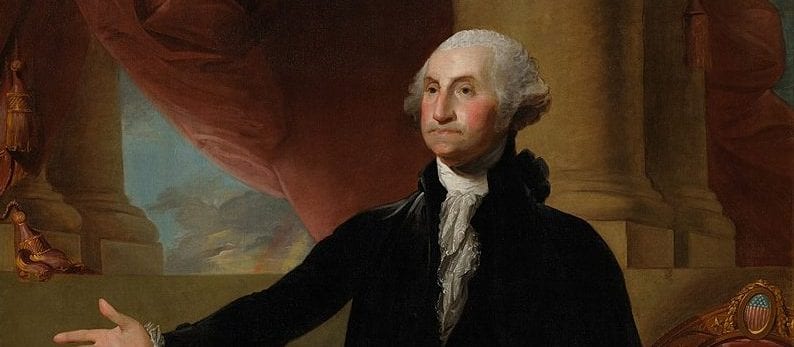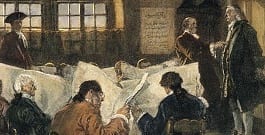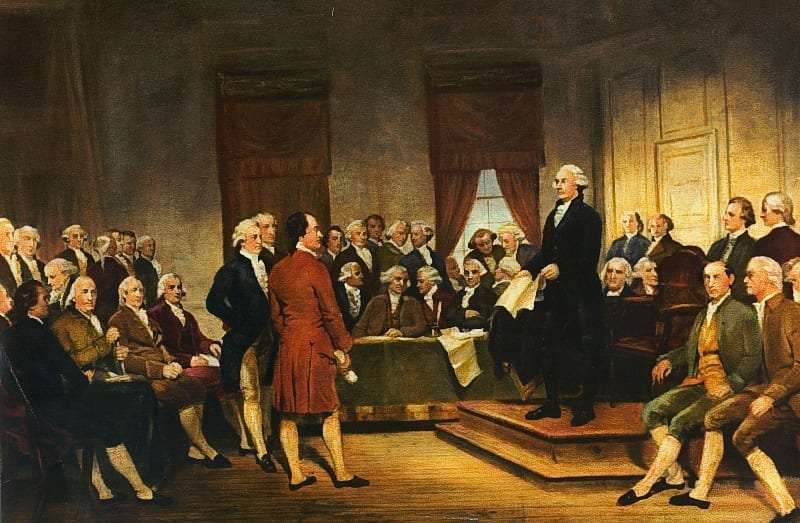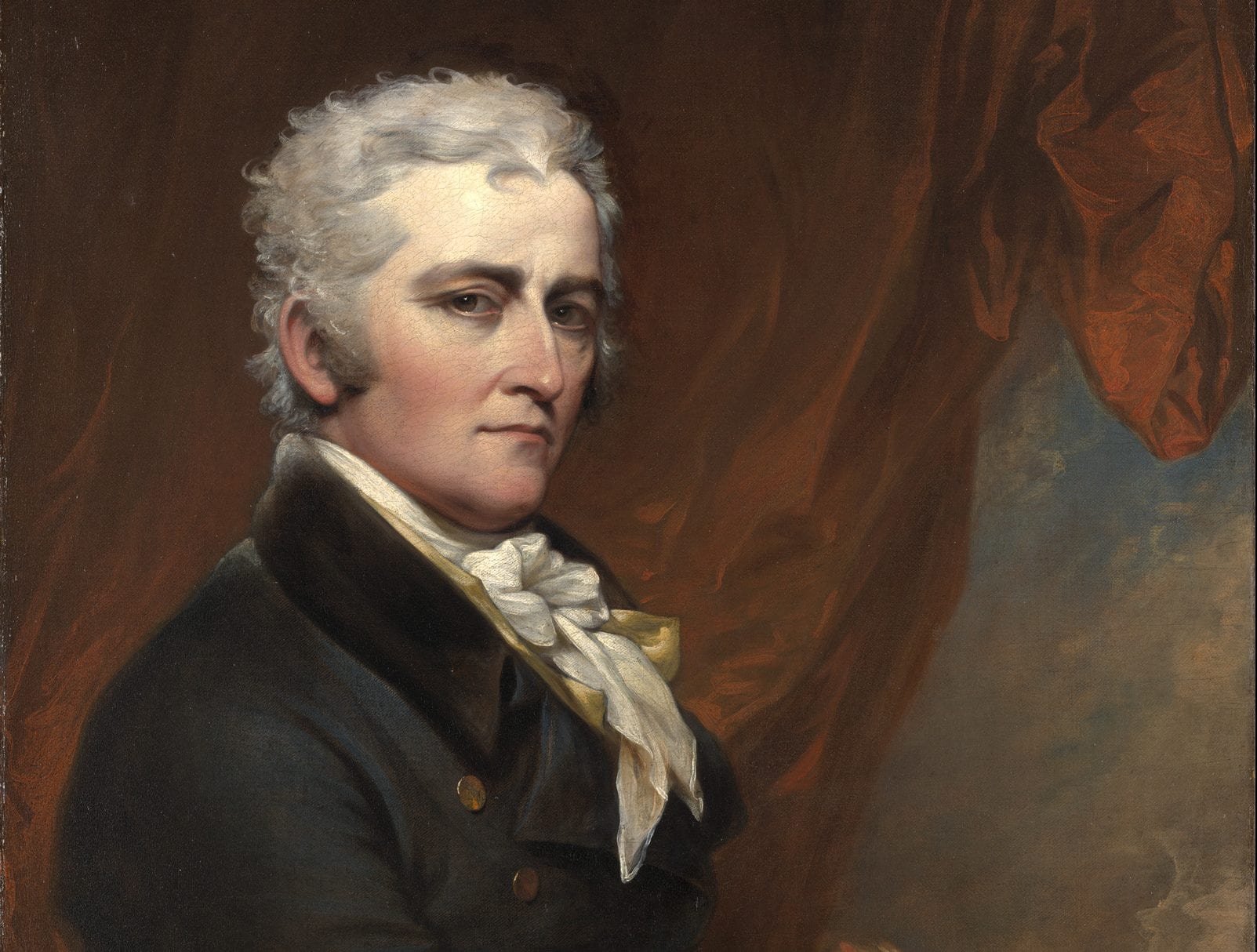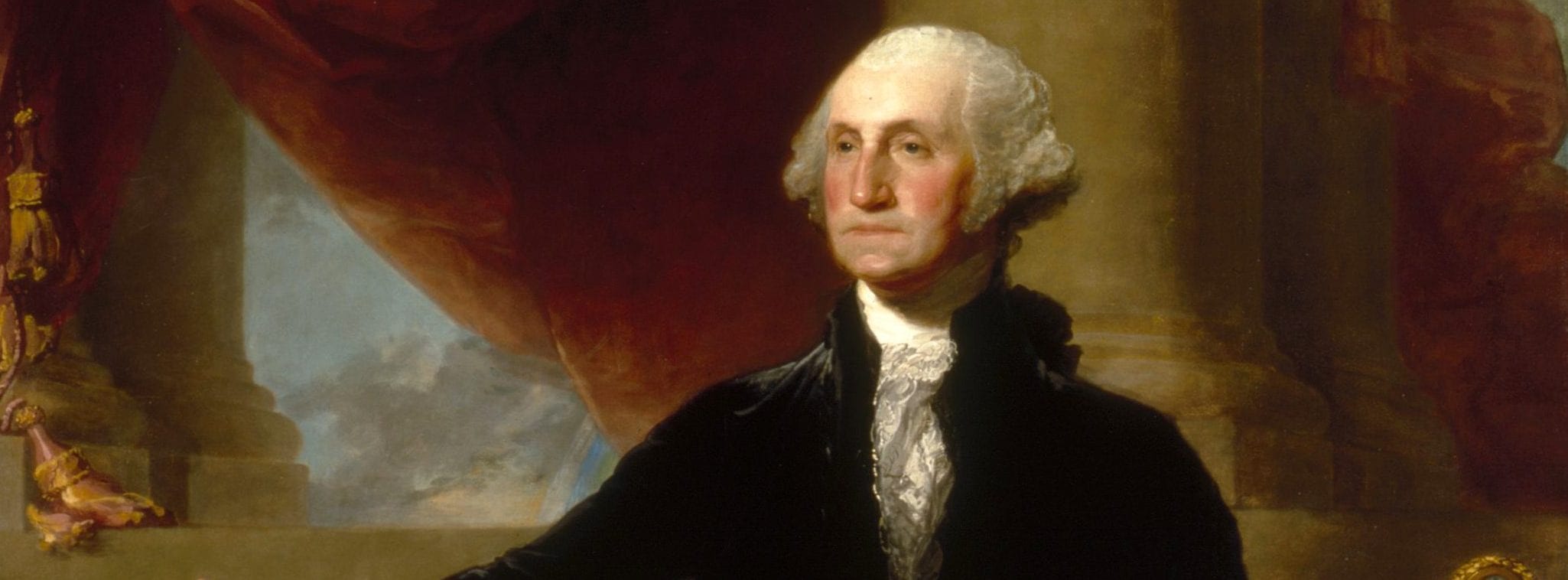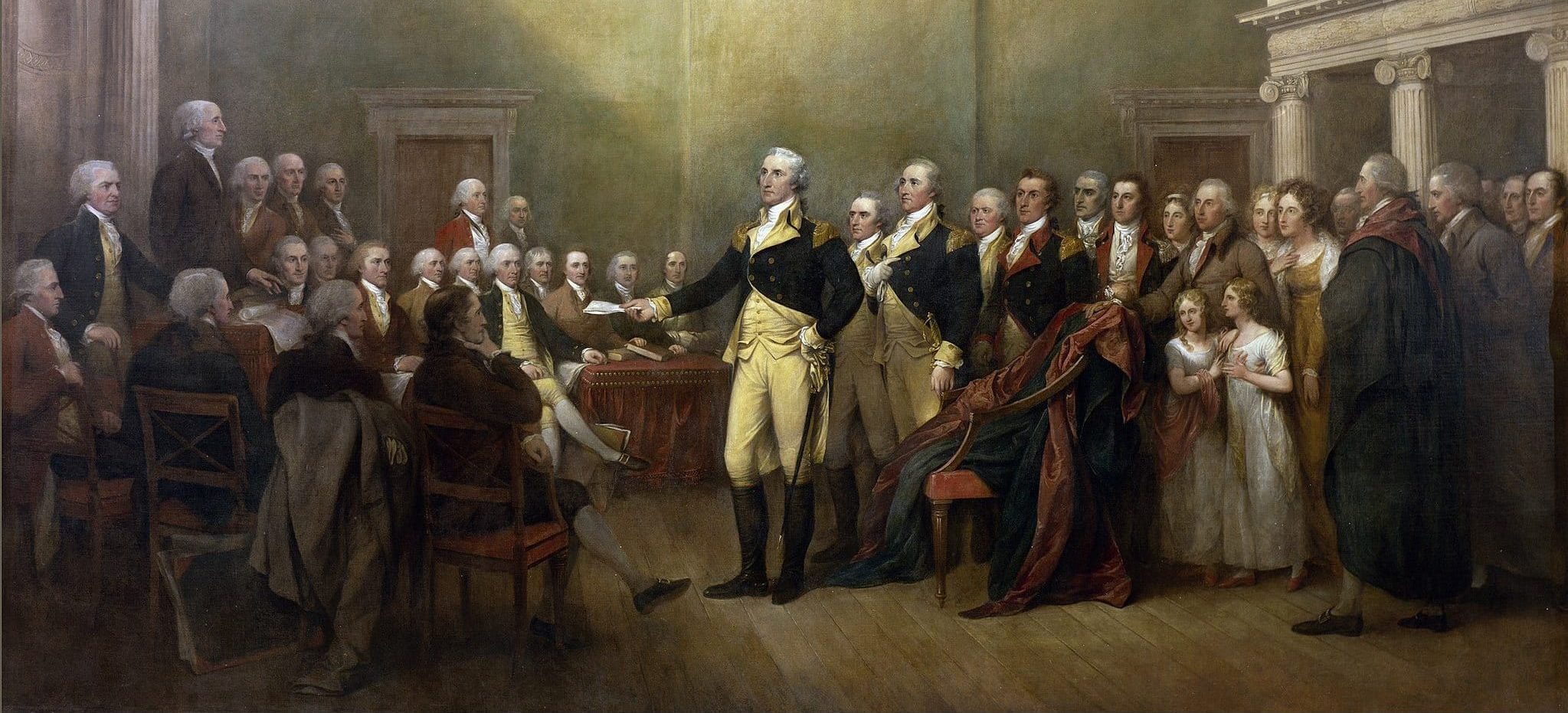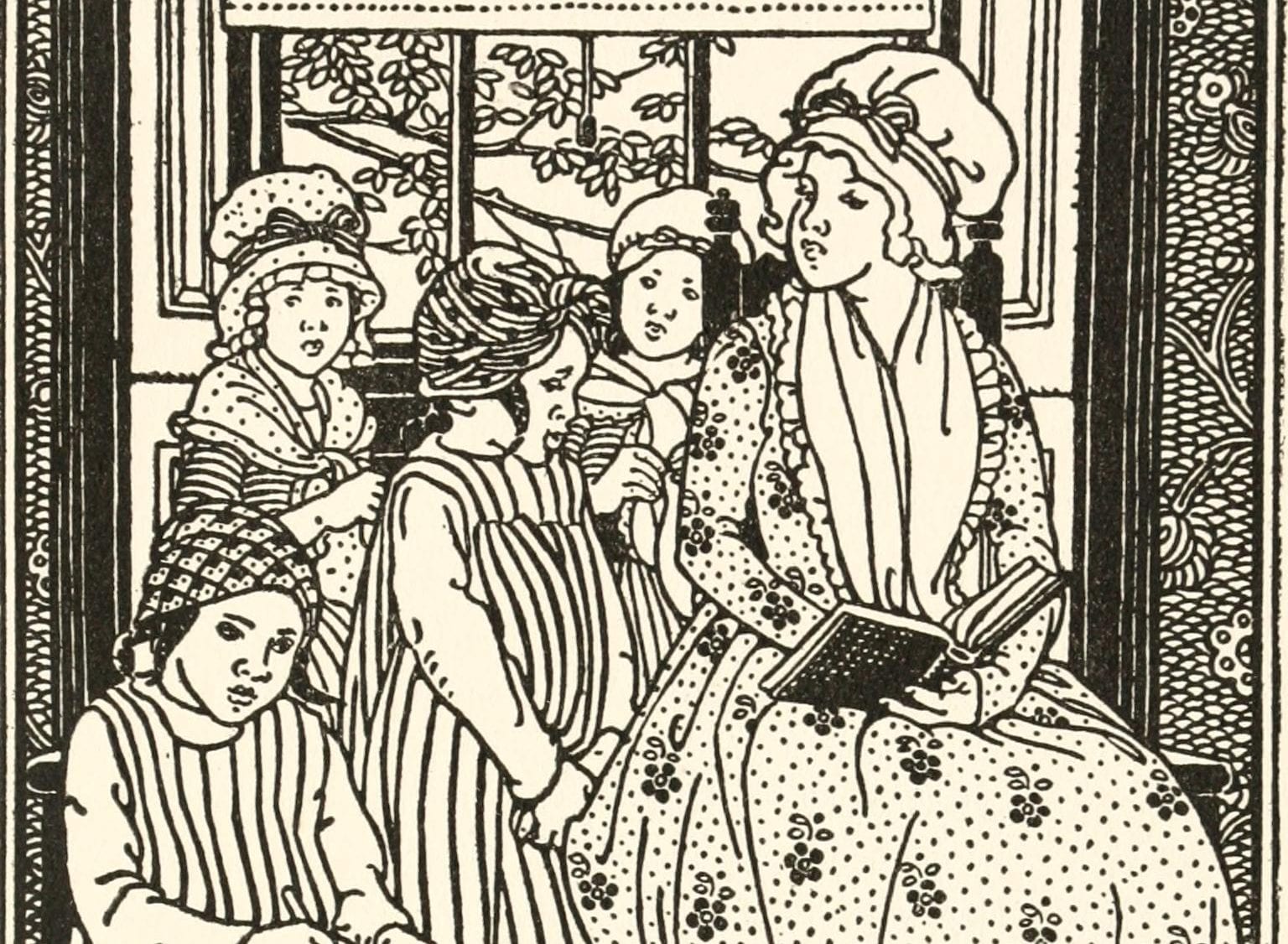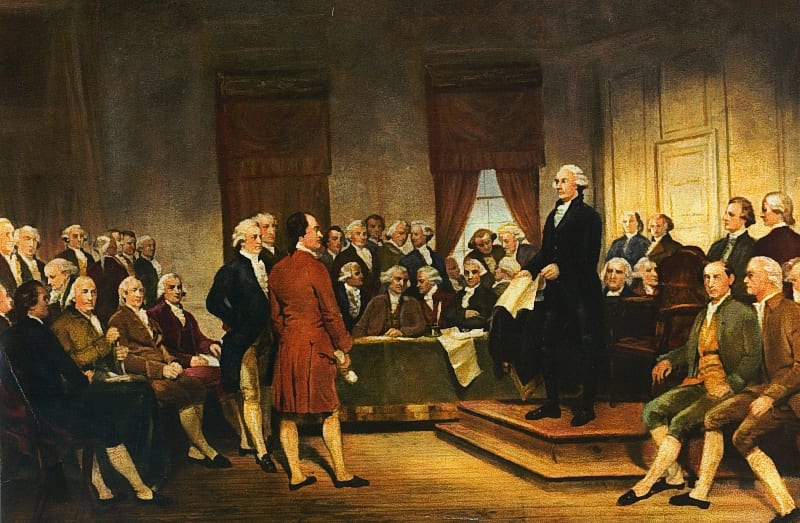
No related resources
Introduction
It is likely that Article II of the Constitution would not have been written as it was were it not for the knowledge that George Washington would serve as the first president, and indeed, he was unanimously elected to office. Washington not only proved to be a capable chief executive but to be conscientious in the way he established many of the unspecified precedents and protocols surrounding the office. Yet Washington quickly tired of public life and intended to retire after his first term. He asked James Madison to help him prepare a retirement address to the American people that would articulate his vision for how the United States could become a flourishing and prosperous nation. Washington’s friends, however, convinced him to serve a second term of office despite his reluctance. As his second term neared completion, Washington again stated his intention to retire, this time asking Alexander Hamilton to revise Madison’s earlier draft into what would become his Farewell Address. The address puts on display Washington’s fear of political parties, a concern shared by many of his contemporaries.
A further point of interest is that the Senate engages in an annual reading of President Washington’s Farewell Address by a current member of the U.S. Senate. The tradition started in 1862 and became an annual event in 1893. After the appointed senator reads the address in legislative session, he or she signs his or her name in Washington’s Farewell Address Book.
Source: Farewell Address, George Washington, September 19, 1796. Online by Gerhard Peters and John T. Wolley, The American Presidency Project. https://www.presidency.ucsb.edu/node/200675
To the People of the United States.
Friends and Fellow-Citizens,
The period for a new election of a Citizen, to administer the executive government of the United States, being not far distant, and the time actually arrived, when your thoughts must be employed in designating the person, who is to be clothed with that important trust, it appears to me proper, especially as it may conduce to a more distinct expression of the public voice, that I should now apprise you of the resolution I have formed, to decline being considered among the number of those, out of whom a choice is to be made.
I beg you, at the same time, to do me the justice to be assured, that this resolution has not been taken, without a strict regard to all the considerations appertaining to the relation, which binds a dutiful citizen to his Country; and that, in with drawing the tender of service which silence in my situation might imply, I am influenced by no diminution of zeal for your future interest; no deficiency of grateful respect for your past kindness; but am supported by a full conviction that the step is compatible with both….
. . . I rejoice, that the state of your concerns, external as well as internal, no longer renders the pursuit of inclination incompatible with the sentiment of duty, or propriety; and am persuaded whatever partiality may be retained for my services, that in the present circumstances of our Country, you will not disapprove my determination to retire…
. . . Here, perhaps, I ought to stop. But a solicitude for your own welfare, which cannot end but with my life, and the apprehension of danger, natural to that solicitude, urge me on an occasion like the present, to offer to your solemn contemplation, and to recommend to your frequent review some sentiments, which are the result of much reflection, of no inconsiderable observation, and which appear to me all important to the permanency of your felicity as a people. These will be offered to you with the more freedom, as you can only see in them the disinterested warnings of a parting friend, who can possibly have no personal motive to bias his Council. Nor can I forget, as an encouragement to it, your indulgent reception of my sentiments on a former and not dissimilar occasion.
. . . In contemplating the causes which may disturb our Union, it occurs as matter of serious concern, that any ground should have been furnished for characterizing parties by Geographical discriminations —Northern and Southern— Atlantic and Western; whence designing men may endeavor to excite a belief that there is a real difference of local Interests and views. One of the expedients of party to acquire influence, within particular districts, is to misrepresent the opinions and aims of other districts. You cannot shield yourselves too much against the jealousies and heartburnings which spring from these misrepresentations: they tend to render alien to each other those who ought to be bound together by fraternal affection. The inhabitants of our western country have lately had a useful lesson on this head: they have seen, in the negotiation by the Executive, and in the unanimous ratification by the Senate, of the Treaty with Spain, and in the universal satisfaction of that event throughout the united states, a decisive proof how unfounded were the suspicions propagated among them of a policy in the General Government and in the Atlantic States unfriendly to their interests in regard to the Mississippi: they have been witnesses to the formation of two treaties, that with Great Britain and that with Spain, which secure to them every thing they could desire, in respect to our foreign relations, towards confirming their prosperity. Will it not be their wisdom to rely for the preservation of these advantages on the Union by which they were procured? Will they not henceforth be deaf to those advisers, if such there are who would sever them from their Brethren and connect them with aliens?
. . . All obstructions to the execution of the Laws, all combinations and associations, under whatever plausible character, with the real design to direct, control, counteract, or awe the regular deliberation and action of the constituted authorities, are destructive of this fundamental principle, and of fatal tendency. They serve to organize faction, to give it an artificial and extraordinary force to put in the place of the delegated will of the nation, the will of party, often a small but artful and enterprising minority of the community; and according to the alternate triumphs of different parties, to make the public administration the mirror of the ill conceited and incongruous projects of faction, rather than the organ of consistent and wholesome plans digested by common councils, and modified by mutual interests.
. . . I have already intimated to you, the danger of parties in the state, with particular reference to the founding them on geographical discriminations. Let me now take a more comprehensive view, and warn you in the most solemn manner against the baneful effects of the spirit of party, Generally.—
This spirit, unfortunately, is inseparable from our nature, having its root in the strongest passions of the human mind. It exists under different shapes in all governments more or less stifled, controlled, or repressed; but in those of the popular form, it is seen in its greatest rankness and is truly their worst enemy.
The alternate domination of one faction over another, sharpened by the spirit of revenge, natural to party dissention, which in different ages and countries has perpetrated the most horrid enormities, is itself a frightful despotism. But this leads at length to a more formal and permanent despotism. The disorders and miseries, which result, gradually incline the minds of men to seek security and repose in the absolute power of an individual: and sooner or later the chief of some prevailing faction, more able or more fortunate than his competitors, turns this disposition to the purposes of is own elevation, on the ruins of Public Liberty.
Without looking forward to an extremity of this kind (which nevertheless ought not to be entirely ought of sight) the common and continual mischiefs of the spirit of party are sufficient to make it the interest and duty of a wise People to discourage and restrain it.
It serves always to distract the public councils and enfeeble the Public Administration. It agitates the Community with ill founded jealousies and false alarms; kindles the animosity of one part against another, foments occasionally riot and insurrection. It opens the door to foreign influence and corruption, which finds a facilitated access to the government itself through the channels of party passions. Thus the policy and the will of one country are subjected to the policy and will of another.
There is an opinion that parties in free countries are useful checks upon the administration of the Government, and serve to keep alive the spirit of Liberty. This within certain limits is probably true; and in Governments of a monarchical cast, Patriotism may look with indulgence, if not with favor upon the spirit of party. But in those of the popular character, in Governments purely elective, it is a spirit not to be encouraged. From their natural tendency, it is certain there will always be enough of that spirit for every salutary purpose. And there being constant danger of excess, the effort ought to be, by force of public opinion, to mitigate and assuage it. A fire not to be quenched; it demands a uniform vigilance to prevent its bursting into a flame, lest, instead of warming it should consume.
It is important likewise, that the habits of thinking in a free country, should inspire caution. In those entrusted with its administration, to confine themselves within their respective constitutional spheres. Avoiding in the exercise of the powers of one department to encroach upon another. The spirit of encroachment tends to consolidate the powers of all the departments in one, and thus to create, whatever the form of Government, a real despotism. A just estimate of that love of power, and proneness to abuse it, which predominates in the human heart, is sufficient to satisfy us of the truth of this position. The necessity of reciprocal checks in the exercise of political power; by dividing and distributing it into different depositories, and constituting each the guardian of the public weal against invasions by the others, has been evinced by experiments ancient and modern: some of them in our country and under our own eyes. To preserve them must be as necessary as to institute them. If, in the opinion of the People, the distribution or modification of the constitutional powers be in any particular wrong, let it be corrected by an amendment in the way which the constitution designates. But let there be no change by usurpation; for tho’ this, in one instance, may be the instrument of good, it is the customary weapon by which free Governments are destroyed. The precedent must always greatly overbalance in permanent evil any partial or transient benefit which the use can at any time yield….
Virginia Resolutions
December 21, 1798
Conversation-based seminars for collegial PD, one-day and multi-day seminars, graduate credit seminars (MA degree), online and in-person.




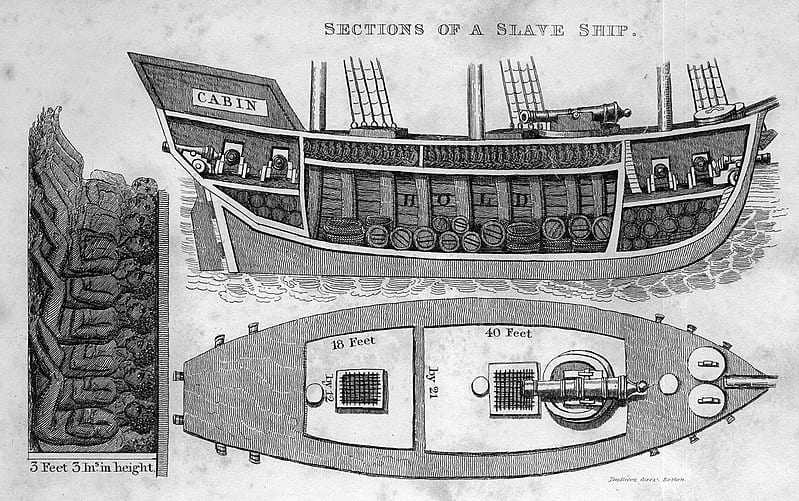







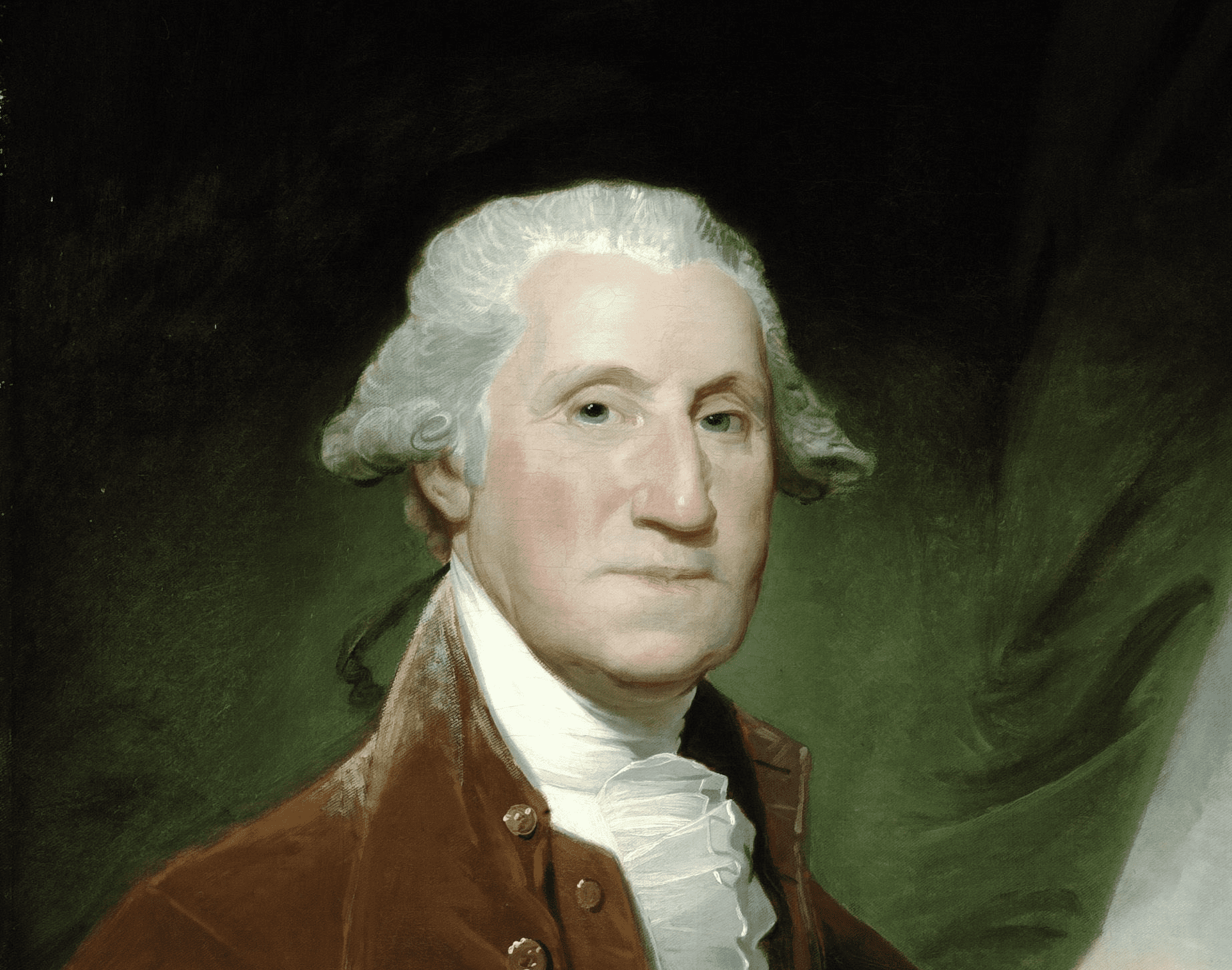
















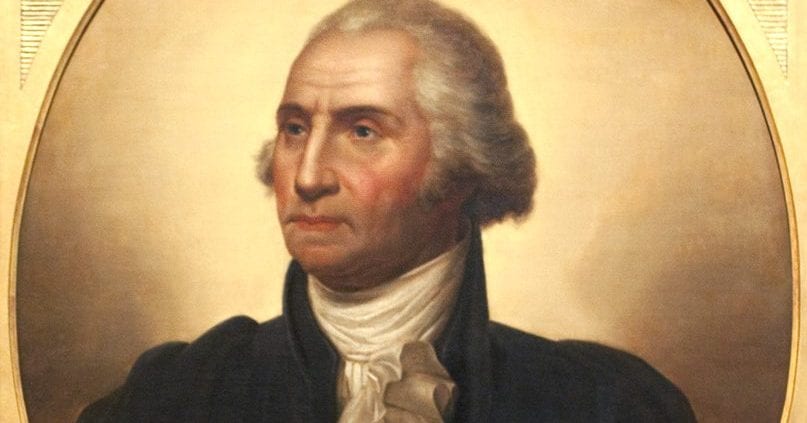


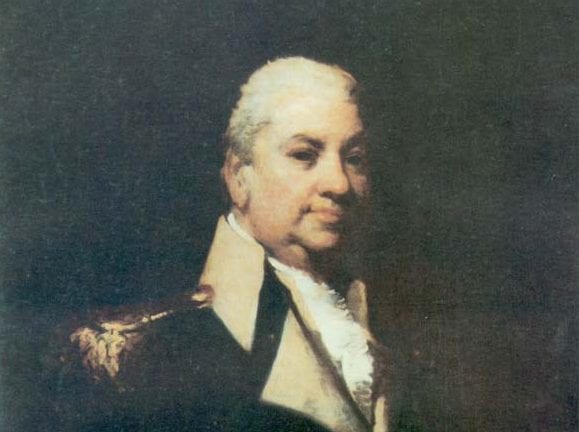




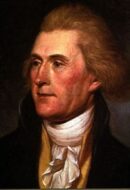














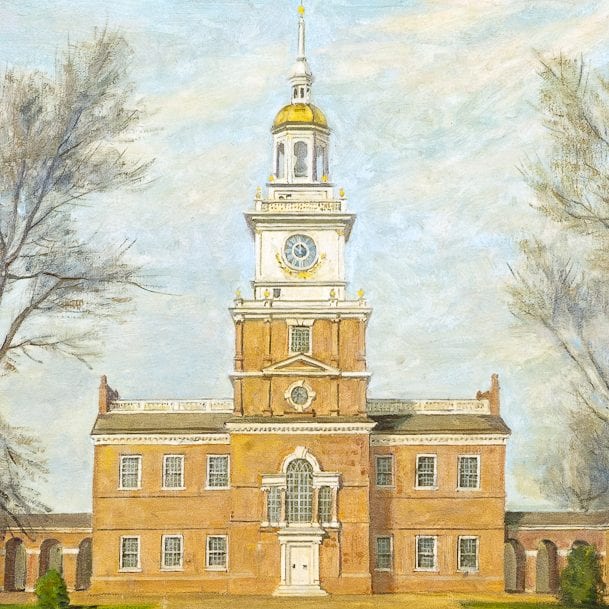

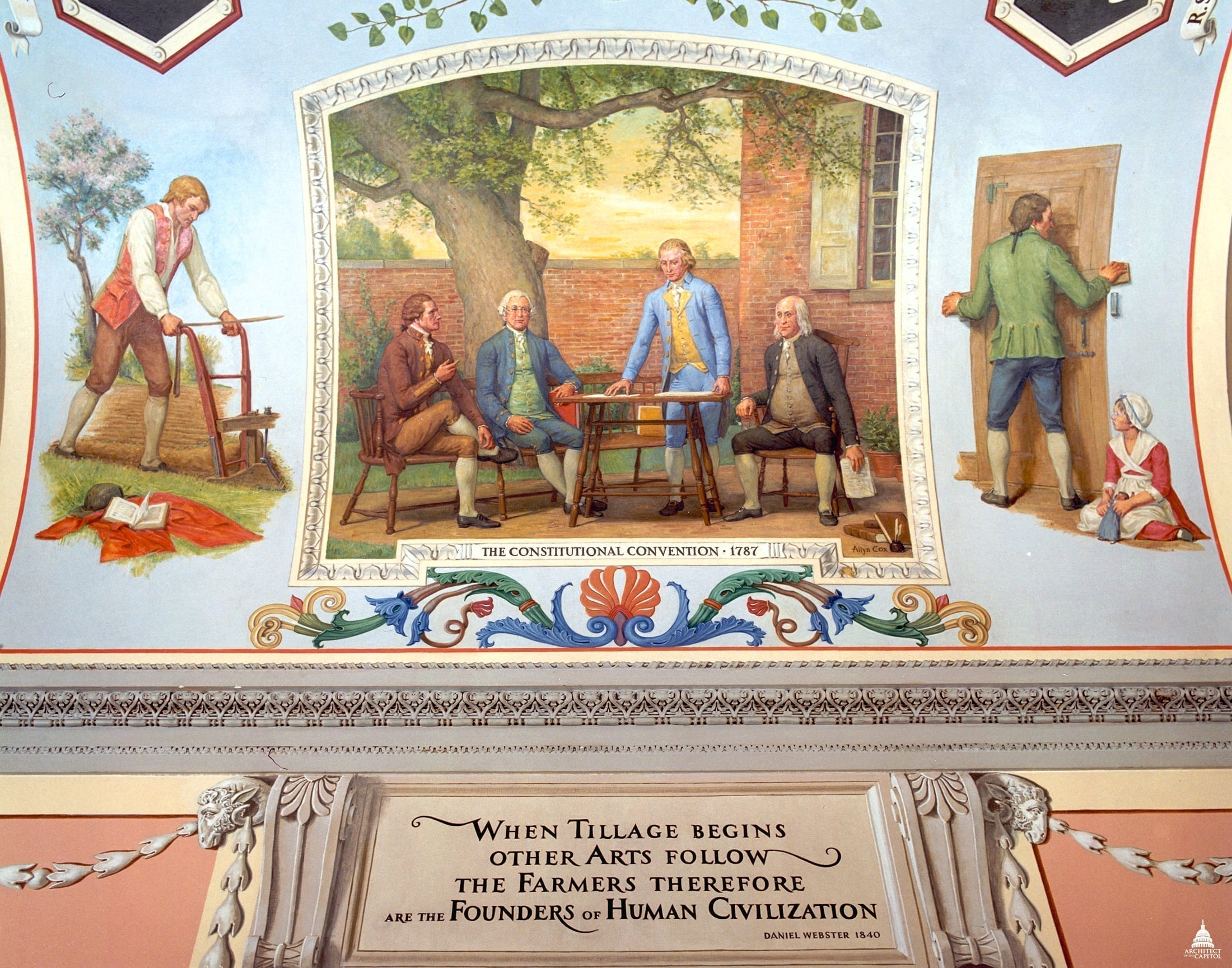

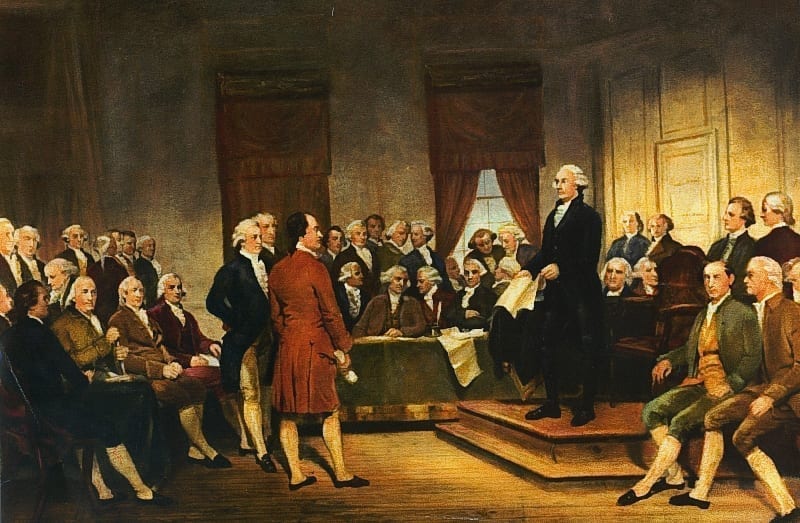



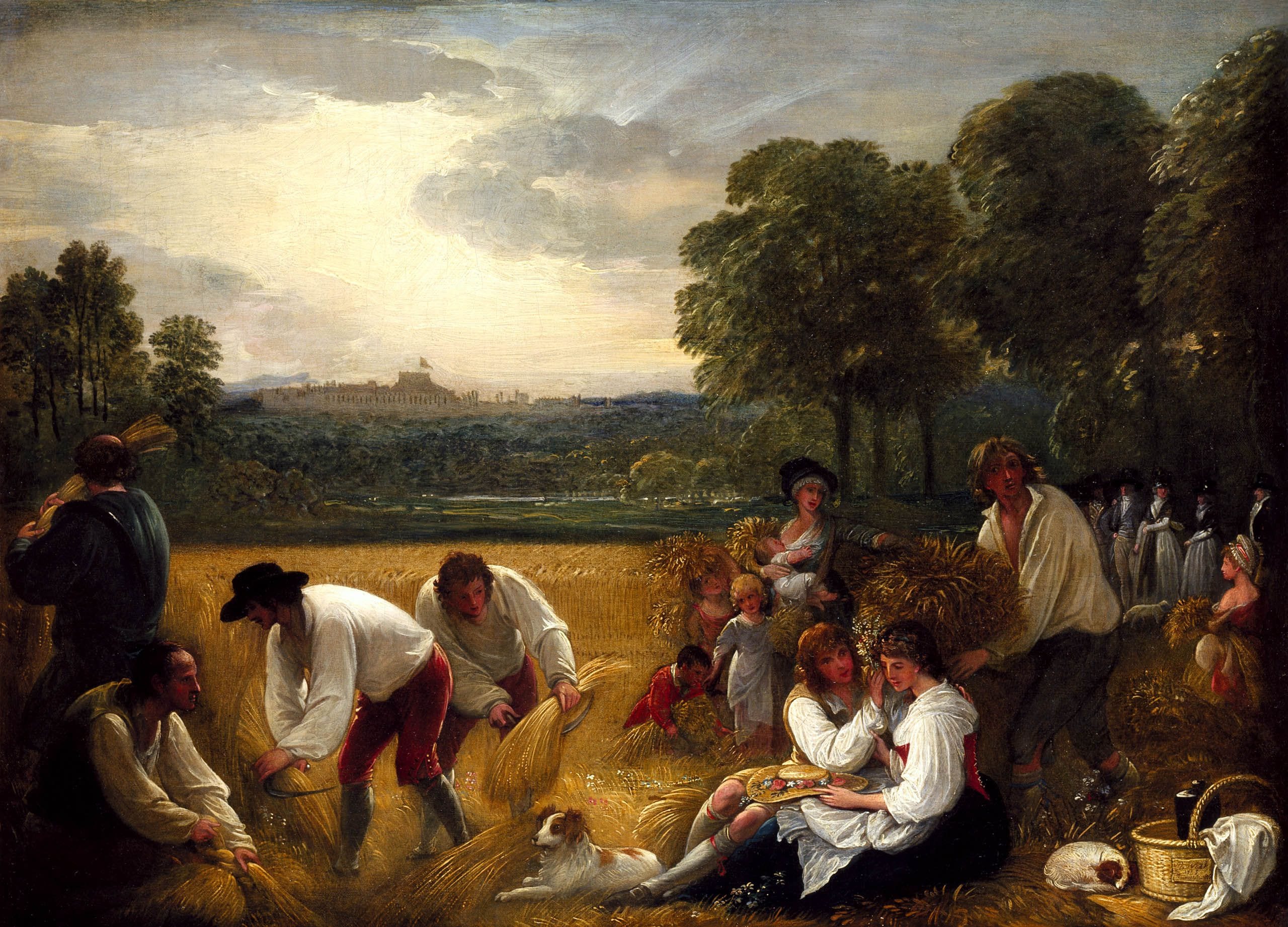


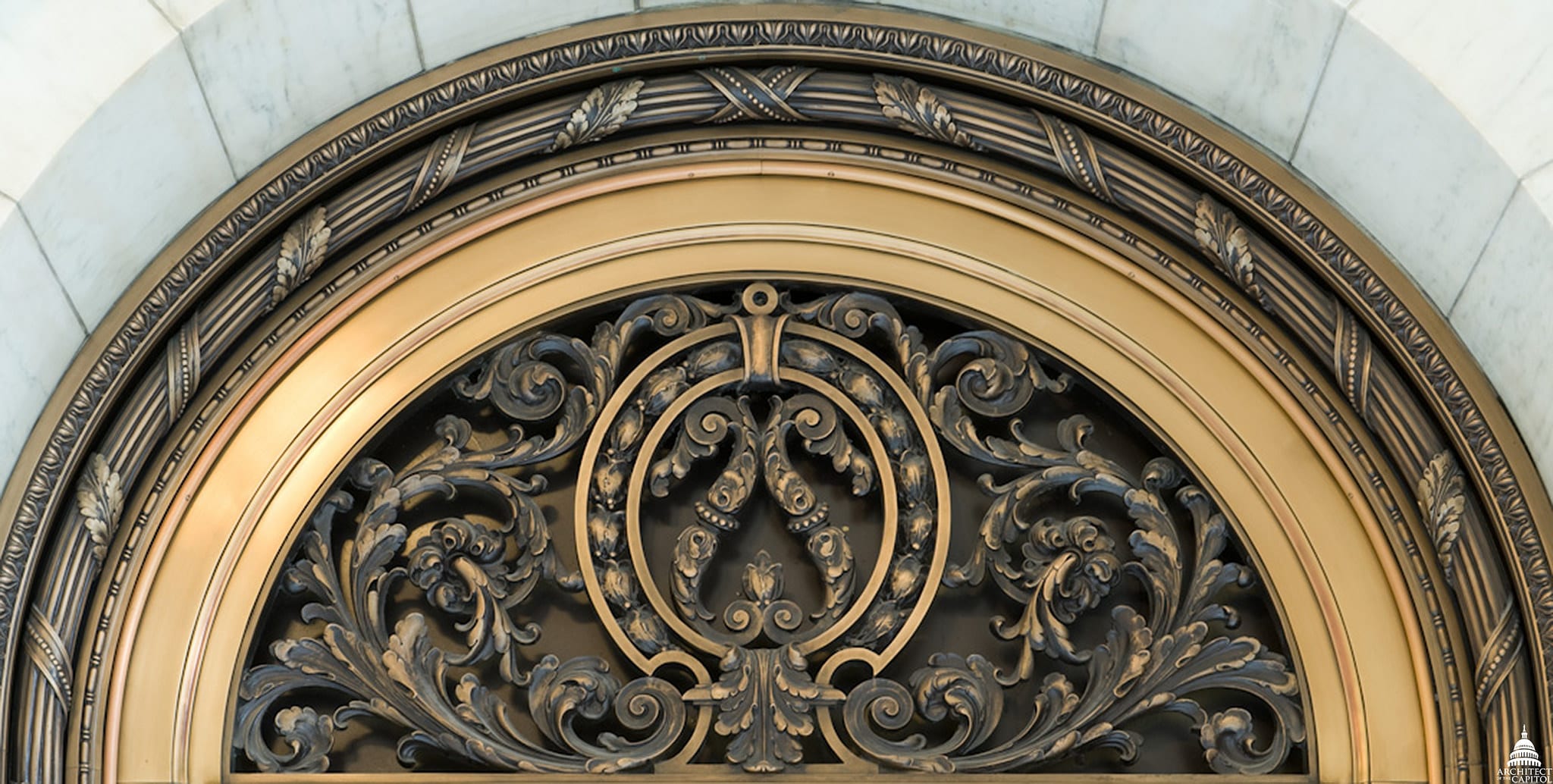













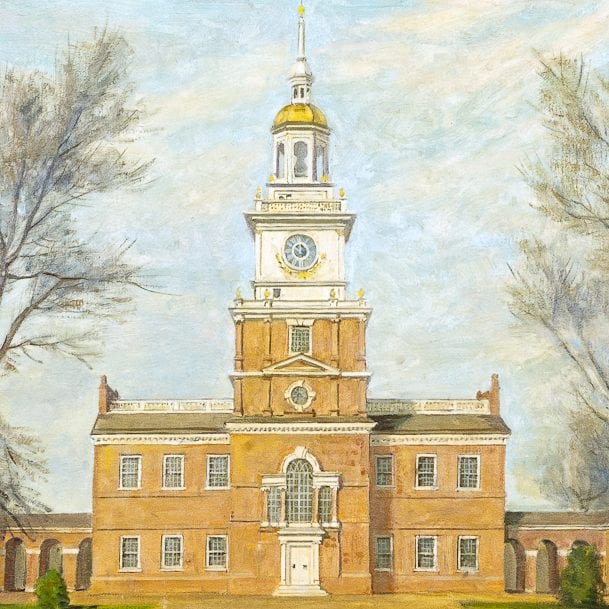
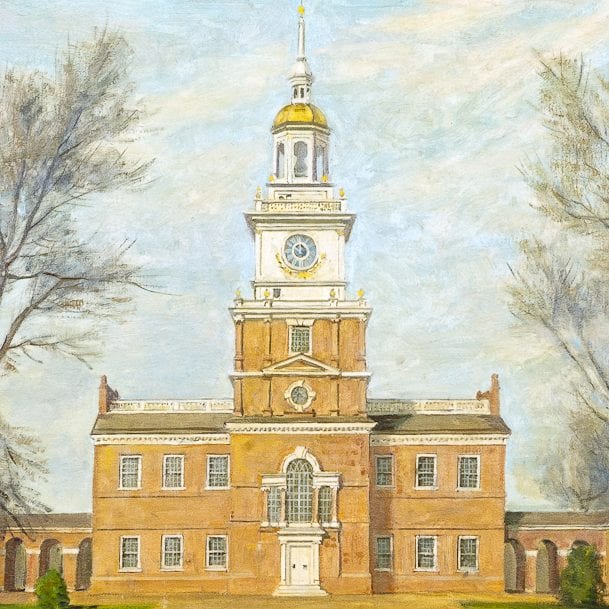


































































































![Finley, A. (1829) Pennsylvania. Philada. [Map] Retrieved from the Library of Congress, https://www.loc.gov/item/98688548/.](/content/uploads/2024/02/Map-of-PA--273x190.jpg)






































